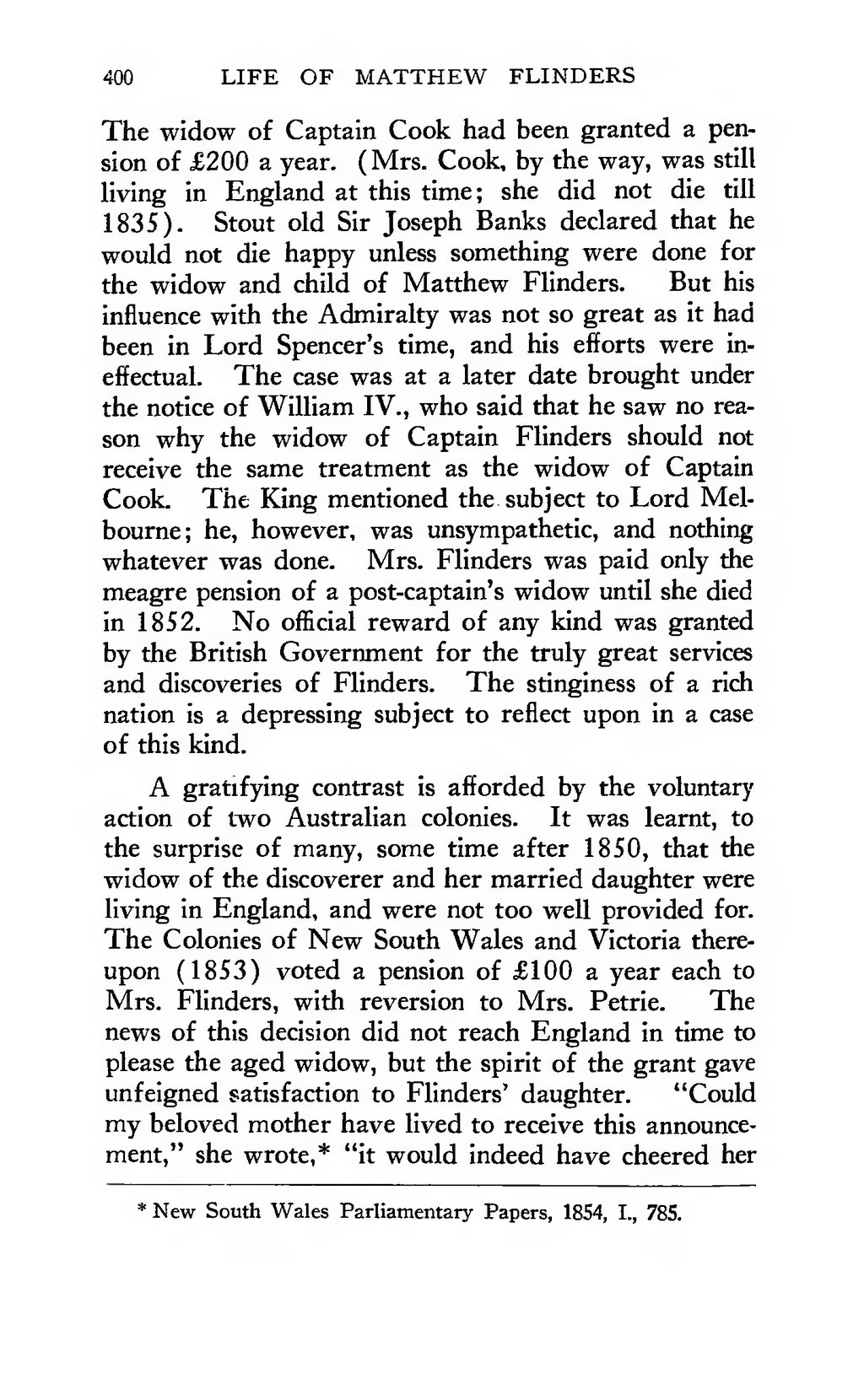The widow of Captain Cook had been granted a pension of £200 a year. (Mrs. Cook, by the way, was still living in England at this time; she did not die till 1835). Stout old Sir Joseph Banks declared that he would not die happy unless something were done for the widow and child of Matthew Flinders. But his influence with the Admiralty was not so great as it had been in Lord Spencer's time, and his efforts were ineffectual. The case was at a later date brought under the notice of William IV., who said that he saw no reason why the widow of Captain Flinders should not receive the same treatment as the widow of Captain Cook. The King mentioned the subject to Lord Melbourne; he, however, was unsympathetic, and nothing whatever was done. Mrs. Flinders was paid only the meagre pension of a post-captain's widow until she died in 1852. No official reward of any kind was granted by the British Government for the truly great services and discoveries of Flinders. The stinginess of a rich nation is a depressing subject to reflect upon in a case of this kind.
A gratifying contrast is afforded by the voluntary action of two Australian colonies. It was learnt, to the surprise of many, some time after 1850, that the widow of the discoverer and her married daughter were living in England, and were not too well provided for. The Colonies of New South Wales and Victoria thereupon (1853) voted a pension of £100 a year each to Mrs. Flinders, with reversion to Mrs. Petrie. The news of this decision did not reach England in time to please the aged widow, but the spirit of the grant gave unfeigned satisfaction to Flinders' daughter. "Could my beloved mother have lived to receive this announcement," she wrote,[1] "it would indeed have cheered her
- ↑ New South Wales Parliamentary Papers 1854, I., 785.
